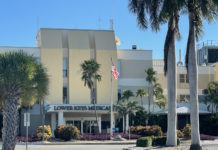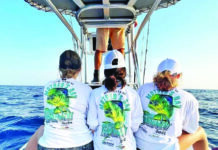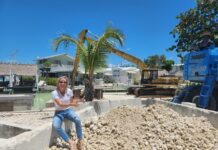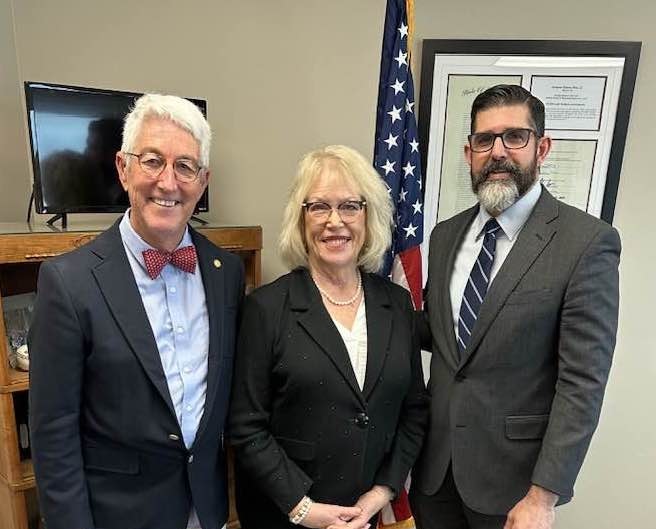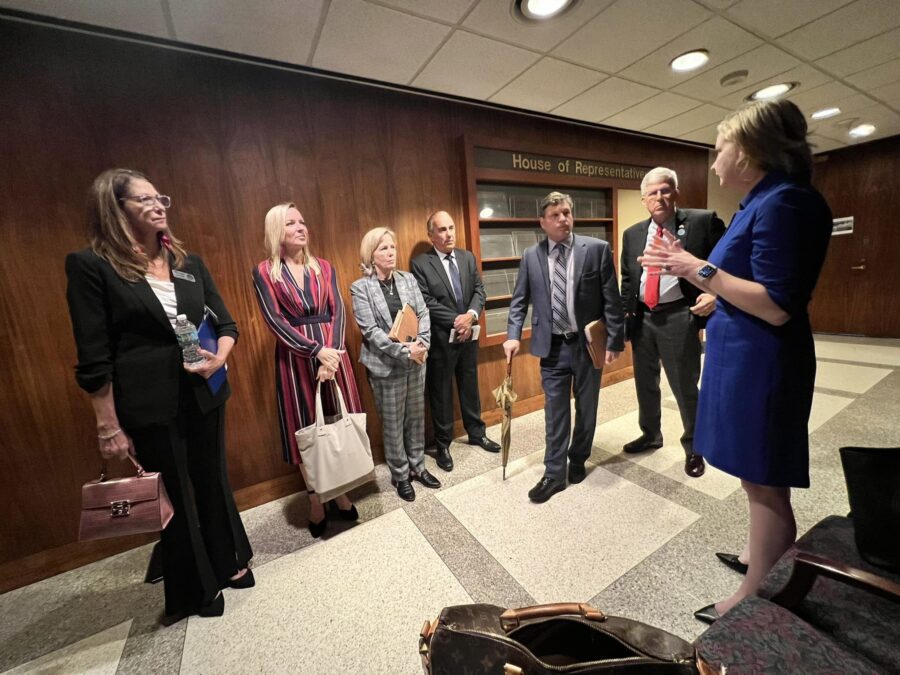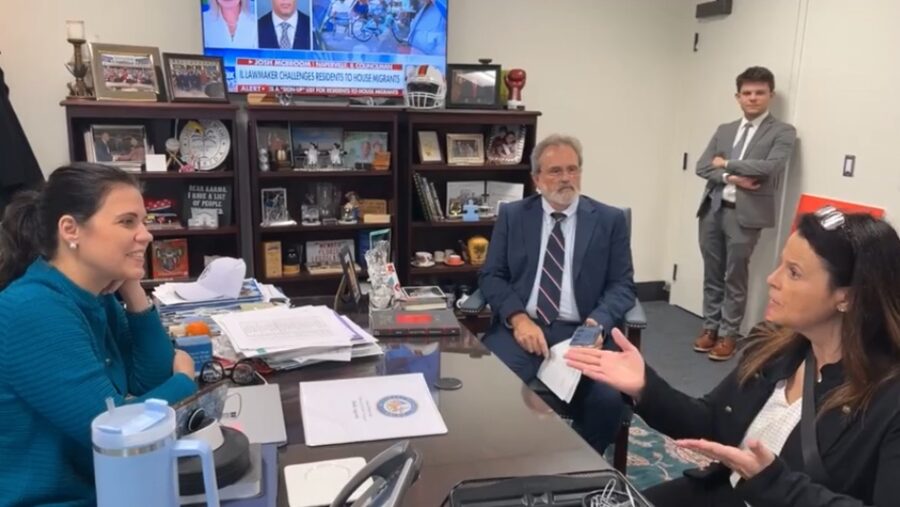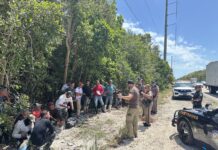
By Alex Rickert, Mandy Miles and Jim McCarthy
Following the annual Florida Keys Day, island officials returning from the panhandle say they’re more than encouraged about several issues atop the island chain’s wish list for the 2024 state Legislative session.
The annual gathering with state legislators to bring a piece of the state’s southernmost county to Tallahassee, this year on Jan. 25, was a meeting of municipalities that several Keys leaders say they hope to see more often throughout the next year as the islands work to resolve critical issues affecting residents from Key Largo to Key West.
Minor changes to evacuations
Multiple officials confirmed to the Weekly that following a brief uproar over draft legislation in Marathon earlier this month, the 2024 legislative session shouldn’t bring extreme changes to hurricane evacuation models or bestow additional building allocations to Keys governments.
Backed by resolutions and verbal support from the Monroe County BOCC, Islamorada Village Council, Key West City Commission and Marathon City Council, meetings with Florida Commerce, which presented potential changes to hurricane evacuation models in late 2023, found agreement with adding Key West residents and mobile homes to phase 2 (24 hours) and phase 1 (48 hours), respectively, of the Keys’ hurricane evacuations.
Decisions about what to do with nearly 8,000 vacant lots throughout the Keys, a large number of which may not be buildable, will likely wait until the 2025 legislative session, following extensive resident input and dialogue among the Keys’ governments. Leaders will try to balance the financial liabilities of takings cases with environmental, traffic and infrastructure concerns that accompany new development.
“They want us to be the decision makers (on building allocations),” said county commissioner Michelle Lincoln.
“They gave us the numbers (for evacuations), and then it’s up to us from there to start having the conversations,” added Marathon Mayor Robyn Still, adding that Florida Commerce “seemed like they wanted to distance themselves from any conversation about specific numbers (of permits).”
Affordable housing making headway
County officials said they were encouraged in early meetings about the fate of legislation that would allow a one-time use of a $25 million surplus from the Monroe County Tourist Development Council (TDC) to go toward construction of affordable housing for tourism workers.
Though recent changes allow TDC funds to be used for capital projects with “public facilities,” the new legislation would allow these “public facility” funds to be used specifically for affordable housing.
“For us, it was about educating some of the different places where the bill is stopping,” said Lincoln. “Specific language was actually crafted with the assistance of the president of the Florida Restaurant and Lodging Association, and this has received the support of all of our chambers of commerce.”
Lincoln added that the bill was written to narrowly constrain distribution of the surplus to a one-time use in Monroe County alone, without larger effects on the other long-standing statutes governing the use of TDC money.
Other items on the table:
- House Bill 565, filed by state Rep. Jim Mooney, seeks several crucial insurance reforms for the Keys. As filed, the bill would raise the maximum property value for coverage by Citizens Property Insurance Corp. from $1 million to $1.5 million and would institute a 10% annual rate cap on insurance premium increases. The bill also nixes a flood insurance requirement for Citizens policyholders who aren’t at risk of flooding – either because of their location in an “X” zone or elevation of their home at least one foot above base flood elevation.
- Councilman Mark Gregg, who was among the contingent from Islamorada to visit Tallahassee, and Still both touted a new program that could fund new fire rescue boats in the islands. Gregg said Islamorada hopes to secure $300,000 from the state for equipment and training, and that “given the number of people on the water in Islamorada on any given weekend, it makes perfect sense.” Still said Marathon officials spoke extensively with District 82 state Rep. Lauren Melo about the program, which could fund units best equipped to handle all varieties of medical emergencies at sea, from heart trouble to shark bite victims, with paramedics on board.
- Key West Mayor Teri Johnston said she was pleased that the Southernmost City was “successful in getting both of our appropriation requests – the Caroline Street road project and the Southernmost Point sea wall – into the Senate budget thanks to the support of Sen. Ana Maria Rodriguez.” Johnston said Key West is also closely monitoring a bill with language to assist funding of homeownership units in the Lofts in Bahama Village.
- A full allocation of $20 million for the Florida Keys Stewardship Act is once again in budgets for both the House and Senate. In addition to setting aside funding for state land acquisition throughout the Keys and other items, the act supports critical water quality projects throughout the islands.
- Lincoln said meetings with FWC officials continued to stress the derelict vessel issue throughout the Keys, reiterating that the current process leaves dozens of vessels stuck in an extensive paper trail before officials can take action. “We’re not doing anything to rattle their cage, but we asked for anything they can do to help this process become a little more expeditious, and they heard us on that,” she said.
